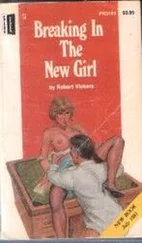‘Get away, child!’ she said, and his voice followed her as she hurried up the stairs,
‘I know what hyperbole is, Mrs Hansome—and it isn’t you!’
No, indeed, she thought, lying in the bath, where she had brought up the tumbler of golden whisky, she was not much given to exaggeration. Peter had, one had to admit it, embroidered—improved on life, as he might, if challenged, have put it. But she herself did not wish such improvements. Not for reasons of greater honesty than her husband (about human honesty, even her own, Bridget was firmly sceptical) but because it wasn’t safe, she felt, to polish things up, or dim them down. Not to name things as you found them put you more at their mercy…
If Peter Hansome had not named things quite as he found them it was because he had problems discerning them clearly in the first place. Reality may be singular but the sense of it is not, and ‘one man’s meat is another man’s poison’ refers to more than simple taste. ‘A fool sees not the same tree that a wise man sees’ perhaps puts it better. Many conflicts of opinion can be explained by the fact that perceptual systems depend on the personalities of the perceivers.
In Peter’s case, behind all his responses lurked a chronic panic, which coloured—or obscured—his apprehension of reality. Although he would never have owned to it he could not forget that day when half his known world walked away and left him. From this moment, he had constructed a personality upon which such a loss had made no obvious dent; but this did not mean that the dent had not been planted. As a child the knock had made for a wary caution. In time, and with training, the wariness had become overlaid with an acceptable veneer, one in which a kind of genial sociability acted as a polished surface which deflected intimacy; but the most significant feature of his character was that at bottom he was frightened of people.
It takes a rare man to know he is afraid—and why. Peter was not aware that he was fearful of other people’s power to remove themselves, nor that he had chosen Bridget because although she exuded a power which did not always make him feel comfortable, it did not, at least, feel as if it might desert him. And in this he was correct. That he was capable of being harmed, perhaps mortally, through loss of another’s love, was a secret, even from himself. Dormant and lethal, it lay hidden at the centre of Peter’s universe, until the October day when the truck driver adjusted his cassette and exploded Peter’s former reality.
It is part of nature’s way to meet threat with superfluity: toads puff up their skin, snakes rear, peacocks rattle and spread their tails; the habit of hyperbole is but another version of this florid system of defence. Lying in her bath, inhaling the scent of meadow flowers, Bridget remembered Peter, late one Christmas Eve, returning, as she now understood, from seeing Frances. She heard again the familiar accent of anxiety, concerned to account for time which could not be accounted for except by honesty or omission—‘I would have been home earlier but there was an accident on the M4—terrible catastrophe—I shouldn’t be surprised if someone got killed!’—and wept for the way life had apparently taken him at his word.
The Soho gallery which Frances managed, dealt, among other contemporary artists, in the works of Patrick Painter. Although Frances did not own the gallery she was indispensable to its running: it was understood that without her skills Gambit Galleries would never have hung on to its most prestigious name.
There were rules for dealing with Patrick Painter: you did not call him before noon; you never enquired about his health, or his financial affairs, and no one was permitted to comment on his name. A journalist from a respected broadsheet had lost a promised interview because he had been unable to refrain from audibly murmuring, ‘Painter by name…’ Frances, who arrived too late to prevent this outrage, explained, ‘It is not his own name, you see. It was his stepfather’s—they didn’t get on.’ ‘Why for Christ’s sake didn’t he change it then, if it offends him so much?’ the aggrieved young journalist had asked, conscious of the hole in the copy this upset would make, and doubly conscious of his editor’s displeasure.
Painter lived in Isleworth with his mother and his tortoises. Frances had sometimes speculated that the mother and the tortoises occupied interchangeable places in the artist’s mind. It was to visit Painter that Monday morning that Frances had returned the previous evening from Shropshire.
When Painter asked to see Frances, it was generally to seek her view on some painting on which he was stuck. As with everything to do with him these meetings involved a certain amount of ritual before a hint of anything to do with work-in-hand could be broached.
‘So you’ve deigned to come and see me, have you?’ Painter said, meeting her at the front door and indicating she should go ahead into the front room. ‘About bloody time, too!’ He swept a chair free of a pile of unsorted magazines and papers.
Paradoxically, the house, although apparently a tremendous muddle, always had an ordering effect on Frances, a product, she supposed, of the fact that the house itself made up much of the subject matter of the artist’s orderly paintings. There was some to-do about the biscuits—the tin could not be found. ‘Jesus, Mary and Joseph, the ginger nuts. What has the bloody bitch done with them?’
Frances was used to this. ‘If by that you mean Mrs Hicks, I think it most unlikely she has done anything. I expect you’ve eaten them.’ She looked about the Formica-covered kitchen until she found a tin with a picture of the Queen with her corgis on it. ‘These shortbread, will they do?’
‘At a pinch—but you would prefer ginger nuts…?’
Frances said she’d prefer not to have a biscuit at all lest she grew fat.
‘Rubbish, you have no arse to speak of.’
‘Well, I hope to keep things that way.’
‘Nonsense, a woman should have a decent arse.’
Other than the nude models he must have drawn from in his pre-abstract days, Frances doubted Painter had ever had anything to do with a woman’s bottom. Nevertheless, because he seemed to like it, she kept up the myth of his erotic interests.
‘Where are the tortoises? Are they out of hibernation?’
‘Fred is—Ginger is still comatose, lazy cow.’
‘Can one call a tortoise “cow”?’
Frances was not deceived by Painter’s habits of speech: she knew him to be a man of warm, if secret, sensibility. After Peter was killed she had found herself ringing the artist in need of the kindness which lay beneath the superficial savageness. Also, he was from Cork and she liked an Irish accent. Maybe that was why she got on with Bridget…?
Painter had got round to his current fix. ‘It’s this effing catastrophe,’ he complained, indicating a canvas composed of tiny delicately painted squares of lilac—recognisably a mutation of the hall wallpaper. ‘Look at it, will you just—I’ll have to destroy the whole bollocking thing.’
‘Maybe it just needs some balance,’ said Frances carefully. She had decided long ago that it didn’t much matter what one said to Painter about his pictures—all that was required was to sound as if what was said made sense. What was important was that Painter felt safe in showing her uncompleted work. It was like being the stooge to a highly strung comic—he relied on her to feed him the right lines.
‘No, no, no, no,’ said Painter, falling into the familiar patter, ‘it’s vile, vile—I’ll have to ditch it.’
‘Hmm,’ said Frances, ‘I see what you mean—but it would be a pity.’
They stood side by side and stared at the canvas. Frances had noticed before that Patrick was nice to be near: he gave one space; there was no crowding in—or pulling away.
Читать дальше












